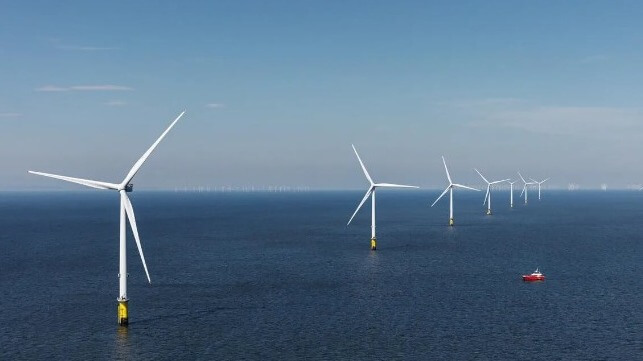Orsted Raises $9.4 Billion in Heavily-Discounted Rights Issue

Danish offshore wind giant Orsted has raised $9.4 billion by selling new shares to existing stockholders at a steeply discounted price. With 99 percent of the new shares sold immediately and the remaining one percent swiftly sold to the public, the firm is now on firmer financial ground as it faces market headwinds and political risk in its core markets.
Orsted sold the shares at a price of 66 Danish kroner each ($10.30), a fraction of the stock's publicly-traded price of about 120 kroner and a third of the most recent peak, 180 kroner, reached in early August. Just five years ago, when Orsted's prospects seemed brighter and it was expanding into new markets, its stock briefly traded above 600 kroner.
The extra cash on hand will help Orsted weather a difficult period. Since the pandemic-era inflation bubble began, Orsted has been forced to write down or cancel multiple offshore wind ventures in the United States, suffering billions in losses on its balance sheet. The Trump administration has added more difficulty by pulling the plug on all future leasing and attempting to cancel development of multiple fully-permitted projects, including Orsted's nearly-complete Revolution Wind. The administration ordered the firm to halt work on the project in August, but a federal judge overturned that order and allowed construction to continue.
The firm is adapting its structure in response to regulatory pressure in the U.S. and the deteriorating business case for offshore wind in many overseas markets. In addition to raising fresh capital from shareholders, Orsted is said to be in talks with Apollo to sell half of its giant Hornsea 3 project for more than $11 billion, bringing in more liquidity. Its management has also announced plans to retrench, reduce headcount and refocus on its core European operations.
"The rights issue strengthens Orsted’s financial foundation, allowing us to focus on delivering our six offshore wind farms under construction, continue to handle the regulatory uncertainty in the U.S., and strengthen our position," said CEO Rasmus Errboe.
